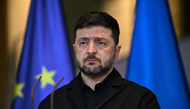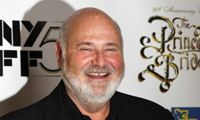▶ GAIL COLLINS
The other night at the State of the Union speech, President Obama mentioned “high-quality early education” and John Boehner applauded. Boehner applauded early education! Paul Ryan likes it, too. Prekindergarten is so in, the guys on “Duck Dynasty” would probably have a good word for it.
Kudos, guys! We certainly don’t want to complain about this. Early education is one of the best tools for breaking the poverty-to-poverty trap. Unfortunately, it only works if it’s high quality, and high quality is expensive. Yet very little of this newfound enthusiasm comes with serious money attached.
Last year, in his State of the Union speech, President Obama called for universal preschool for 4-year-olds, to be paid for by a tobacco tax that would raise $78 billion over 10 years. The prekindergarten idea was hailed throughout the nation. The tax part did not go anywhere. To say it was dead on arrival at Congress is an insult to the word “dead.”
“Everybody seems to agree we need some sort of national effort to provide preschool education to our kids. What we don’t have is any discussion about how to pay for it,” said Senator Patty Murray who is, I am pretty sure, the first former preschool teacher ever to run the Senate Budget Committee.
When President Obama’s detailed budget proposal comes out, he’ll presumably include some way of paying for his universal preschool idea. Perhaps it will be the tobacco tax again. Perhaps you will never know because, in recent years, the presidential budget has all the traction and clout of a small mouse attempting to cross a frozen lake. During a windstorm. While wearing bedroom slippers.
Here in New York, we’re having a political dispute that pits the let’s-just-cheer camp against the pick-a-tax crowd. Mayor Bill de Blasio wants to pay for universal prekindergarten for New York City 4-year-olds with an increase in the income tax rate for high income city residents. He got elected on this issue, but he needs the state’s permission.
Gov. Andrew Cuomo says he’ll just give de Blasio some money out of the state budget. This is an election year, and Cuomo is definitely not targeting any taxpayers, even if the ones in question are jumping up and down and waving their arms to get attention.
The mayor wants money the city can count on to keep coming every year. It’s a very interesting argument. If New York is lucky, the nation will find the debate so fascinating that everyone will forget about the fact that on Tuesday, shortly after Obama called for more quality prekindergarten classes, a congressman from New York City threatened to throw a reporter off the Capitol balcony. This had nothing to do with early childhood education, but you know how people talk.
Cuomo’s estimate of how much it would cost to do preschool for the entire state is lower than de Blasio’s estimate for just New York City. Which is, on a per-pupil basis, much lower than the amount New Jersey spends on a much-praised prekindergarten program. (Cheers to New Jersey for your effort to provide quality early education to the state’s poorest children. We are so impressed that we will leap right over the fact that you only did it because a judge made you.)
One way to dodge the responsibility for coming up with actual cash for a great leap in preschool financing is to argue, as Cuomo does, that you need to roll these things out slowly. “To do it on a large scale is very difficult,” said Ron Haskins of the Brookings Institution, a former adviser to the Bush administration. But Haskins thinks poor children’s needs are so great, and so immediate, that it’s worth the risk. “We’re desperate. These kids are coming into school already a grade behind,” he said.
A quarter of the youngest Americans are poor. We need to get to them quickly, and do the job right, well before they’re 4. And while we should start with the neediest families, if the programs are good, middle-class parents are rightfully going to point out that they need help, too.
It’ll be a huge number of kids, and the classes have to be really small. Also, the teachers have to get much better pay. They go into the business out of love, but when you are talking about median salaries of $27,000 a year, sometimes love is not enough. All in all, we’re talking about a ton of money.
So here’s the question: How much of the new enthusiasm for early childhood education is real, and how much is just an attempt to dodge the whole inequality debate? Maybe we could agree that no politician is allowed to mention pre-k without showing us the money.
스마터리빙
more [ 건강]
[ 건강]이제 혈관 건강도 챙기자!
[현대해운]우리 눈에 보이지 않기 때문에 혈관 건강을 챙기는 것은 결코 쉽지 않은데요. 여러분은 혈관 건강을 유지하기 위해 어떤 노력을 하시나요?
 [ 건강]
[ 건강]내 몸이 건강해지는 과일궁합
 [ 라이프]
[ 라이프]벌레야 물럿거라! 천연 해충제 만들기
 [ 건강]
[ 건강]혈압 낮추는데 좋은 식품
[현대해운]혈관 건강은 주로 노화가 진행되면서 지켜야 할 문제라고 인식되어 왔습니다. 최근 생활 패턴과 식생활의 변화로 혈관의 노화 진행이 빨라지고
사람·사람들
more많이 본 기사
- 마약딛고 함께 영화도 만들었는데…라이너감독 살해한 아들 체포
- 브라운대 총격사건 수사 난항 겪나…체포한 용의자 석방
- 대기천 워싱턴주 강타 역대급 홍수 ...워싱턴주 서부 이례적인 대기천 폭우로 역대급 홍수 발생
- 트럼프, 라이너감독 피살에 “나에 대한 발작적 집착이 분노유발”
- 트럼프 “시리아 대통령 신뢰…그는 IS의 미군 공격과 무관”
- “연준의장 유력후보 해싯, ‘트럼프와 너무 가깝다’ 반대론 직면”
- 멕시코의 최대 50% 관세 배경 설명, ‘트럼프 복사판’
- 美 지한파 중진 “한국 등과 다변화된 광물 공급망 구축해야”
- ‘베네수 코앞’ 트리니다드토바고 “미군에 공항접근 허용”
- “내 한국인 남편, 40일 넘게 개처… 1
- “보이스피싱 이렇게 이뤄집니다”...시애틀총영사관, 타운홀 미팅서 실제사례 재연
- ‘15년째 활동 無’ 원빈 근황, 이시언 유튜브서 공개..”잘 지내는 중”
- LA서 ‘새해벽두 폭탄테러’ 모의 일당 체포… “기업들 공격 시도”
- 오레곤문인협회 신임 회장에 김인자 시인...11일 정기총회서…김혜자 직전회장 6년간 헌신 다해
- 시애틀서 대규모 부정선거 보수집회...KCPAC 주도한 ‘자유민주-한미동맹 시애틀포럼’에 300여명 몰려
- “中 서해부표 이중용도 가능성…직접 도발 피하며 존재감 증대”
- 테슬라 11월 미국 판매… 4년만에 최저
- 박나래 ‘링거·주사 이모’ 난리통 속 결국..MBC ‘팜유트립’ 제작 무산
- 시혹스 56야드 필드골 콜츠에 극적 승리...터치다운 없이 6개 필드골로 버티며 간신히 승리 챙겨
- 180일 수사 마치고 재판 넘긴 내란특검…이제 ‘법원의 시간’
- 미·우크라 이틀간 종전협상…안전보장 진전, 영토 문제 난항
- 지구촌 또 ‘총기 난사’… 미·호주 잇단 참사
- ‘해리가 샐리를 만났을 때’ 롭 라이너 감독 부부 피살
- 관세가 끌어올린 물가… 가구당 1,200달러 추가 지출
- 국과수 “김수현·故 김새론 녹취파일, AI 조작 판정 불가”
- 마약딛고 함께 영화도 만들었는데…라이너감독 살해한 아들 체포
- 경찰, 쿠팡 6차 압수수색 11시간30분만에 종료 “데이터 방대”
- 뉴욕 백화점서 아기 기저귀 갈던 엄마, 정신질환자에 흉기피습
- 野 “30년前 폭행 검증해야”…정원오… 1
- 항공기 승객정보 활용 추방 확대
- ‘128개 홈디포 매장서 319건 절도’ 플러싱 기반 전문절도단 일망타진
- 상무, 고려아연의 美제련소 건설 투자… 1
- [경제 트렌드] 외식비 줄이는 소비자… ‘팁 공포’ 한몫
- 워싱턴 한국학교협의회, 제37회 교사의 밤
- 피로 얼룩진 주말…지구촌 곳곳 총격사건 잇달아
- 원지, ‘6평 사무실’ 논란 후 첫 방송 출연..無편집 “적응 안 돼”
- 美당국자 “러, 우크라 EU가입에 열… 1
- NYT “美 SEC, 트럼프 재집권 후 암호화폐 소송 중단”
- 현대車사장, ‘구금사태’ 조지아서 “일자리 4만개 창출할것”
- 전재수, 통일교 행사 참석 의혹에 “고향서 벌초했다” 반박
- ‘지독한 플래툰’ 김혜성도 71G 뛰었는데, 美 팬그래프 ‘송성문 ML 36G 타율 0.251’ 예상
- 백화점서 아기 기저귀 갈던 엄마 40대 정신질환자에 흉기 피습
- 비극 속 시민의 용기 총격범 맨손 제압
- 오늘의 베네수엘라가 내일의 동아시아국… 2
- 연은 총재 전원 재임명 연준, 만장일치 표결
- 역시 호날두! 북중미 WC 인기 티켓 1위는? 포르투갈-콜롬비아전... 3위가 한국-멕시코전 “개최국 효과”
- 美 “대외원조 중단한 적 없어…국가안보전략 원칙 맞춰 지속”
- 러 “우크라 나토 비가입, 평화 대화의 초석될 것”
- 대학 진학에 도움되는 AP… 적합한 과목 적절히 선택해야
- 통계로 본 올해 대한항공… ‘캡틴 아메리카’ 가장 많이 보고, 최다 방문지 도쿄
1/5지식톡

-
 테슬라 자동차 시트커버 장착
0
테슬라 자동차 시트커버 장착
0테슬라 시트커버, 사놓고 아직 못 씌우셨죠?장착이 생각보다 쉽지 않습니다.20년 경력 전문가에게 맡기세요 — 깔끔하고 딱 맞게 장착해드립니다!장착비용:앞좌석: $40뒷좌석: $60앞·뒷좌석 …
-
 식당용 부탄가스
0
식당용 부탄가스
0식당용 부탄가스 홀세일 합니다 로스앤젤레스 다운타운 픽업 가능 안녕 하세요?강아지 & 고양이 모든 애완동물 / 반려동물 식품 & 모든 애완동물/반려동물 관련 제품들 전문적으로 홀세일/취급하는 회사 입니다 100% …
-
 ACSL 국제 컴퓨터 과학 대회, …
0
ACSL 국제 컴퓨터 과학 대회, …
0웹사이트 : www.eduspot.co.kr 카카오톡 상담하기 : https://pf.kakao.com/_BEQWxb블로그 : https://blog.naver.com/eduspotmain안녕하세요, 에듀스팟입니다…
-
 바디프렌드 안마의자 창고 리퍼브 세…
0
바디프렌드 안마의자 창고 리퍼브 세…
0거의 새제품급 리퍼브 안마의자 대방출 한다고 합니다!8월 23일(토)…24일(일) 단 이틀!특가 판매가Famille: $500 ~ $1,000Falcon: $1,500 ~ $2,500픽업 & 배송직접 픽업 가능LA…
-
 바디프렌드 안마의자 창고 리퍼브 세…
0
바디프렌드 안마의자 창고 리퍼브 세…
0거의 새제품급 리퍼브 안마의자 대방출 한다고 합니다!8월 23일(토)…24일(일) 단 이틀!특가 판매가Famille: $500 ~ $1,000Falcon: $1,500 ~ $2,500픽업 & 배송직접 픽업 가능LA…
케이타운 1번가
오피니언
 옥세철 논설위원
옥세철 논설위원오늘의 베네수엘라가 내일의 동아시아국가…

퇴조의 핑크 타이드
 조지 F·윌 워싱턴포스트 칼럼니스트
조지 F·윌 워싱턴포스트 칼럼니스트 [조지 F. 윌 칼럼] 대통령의 전쟁수행권
 조옥규 수필가
조옥규 수필가 투고(To Go) 해야 하나?
 신경립 / 서울경제
신경립 / 서울경제 [만화경] ‘뒷마당’ 찾겠다는 트럼프식 먼로주의

22기 LA평통 출범에 거는 기대

연말 시즌 사기·범죄 경계해야
 메건 매카들 워싱턴포스트 칼럼니스트
메건 매카들 워싱턴포스트 칼럼니스트 [메건 매카들 칼럼] 장편영화의 마지막 챕터인가
 김미선 서북미문인협회 회장시인
김미선 서북미문인협회 회장시인 [한국춘추] 하늘을 계산한 사람들, 칠정산
1/3지사별 뉴스

피로 얼룩진 주말…지구촌 곳곳 총격사건 잇달아
지난 주말 동안 미동부 아이비리그 브라운대학에서 총격 사건이 발생, 최소 2명이 사망하고 9명이 부상한데 이어 호주 시드니에서는 사망자 16…
뉴욕·뉴저지 등 19개 주정부 H-1B비자‘10만달러 수수료’소송

워싱턴 한국학교협의회, 제37회 교사의 밤
재미한국학교 워싱턴지역협의회(회장 정광미)가 13일 ‘제 37회 교사의 밤’을 개최, 한 해 동안 헌신한 교사들의 노고를 위로했다. 올해 최우…
안수화 회장 연임 확정

마약딛고 함께 영화도 만들었는데…라이너감독 살해한 아들 체포
할리우드 명감독 롭 라이너 부부를 살해한 혐의로 체포된 아들 닉 라이너(32)는 10대 시절 마약 중독으로 재활센터와 노숙 생활을 전전한 이력…
내년 중간선거 낙관못하는 트럼프… “경제성과 전달에 시간 걸려”

오늘 하루 이 창 열지 않음 닫기 





















































.png)


댓글 안에 당신의 성숙함도 담아 주세요.
'오늘의 한마디'는 기사에 대하여 자신의 생각을 말하고 남의 생각을 들으며 서로 다양한 의견을 나누는 공간입니다. 그러나 간혹 불건전한 내용을 올리시는 분들이 계셔서 건전한 인터넷문화 정착을 위해 아래와 같은 운영원칙을 적용합니다.
자체 모니터링을 통해 아래에 해당하는 내용이 포함된 댓글이 발견되면 예고없이 삭제 조치를 하겠습니다.
불건전한 댓글을 올리거나, 이름에 비속어 및 상대방의 불쾌감을 주는 단어를 사용, 유명인 또는 특정 일반인을 사칭하는 경우 이용에 대한 차단 제재를 받을 수 있습니다. 차단될 경우, 일주일간 댓글을 달수 없게 됩니다.
명예훼손, 개인정보 유출, 욕설 등 법률에 위반되는 댓글은 관계 법령에 의거 민형사상 처벌을 받을 수 있으니 이용에 주의를 부탁드립니다.
Close
x